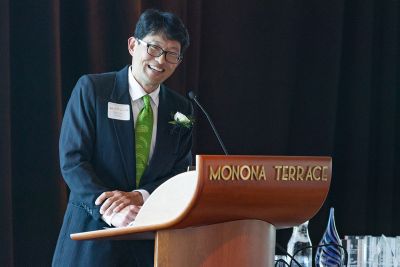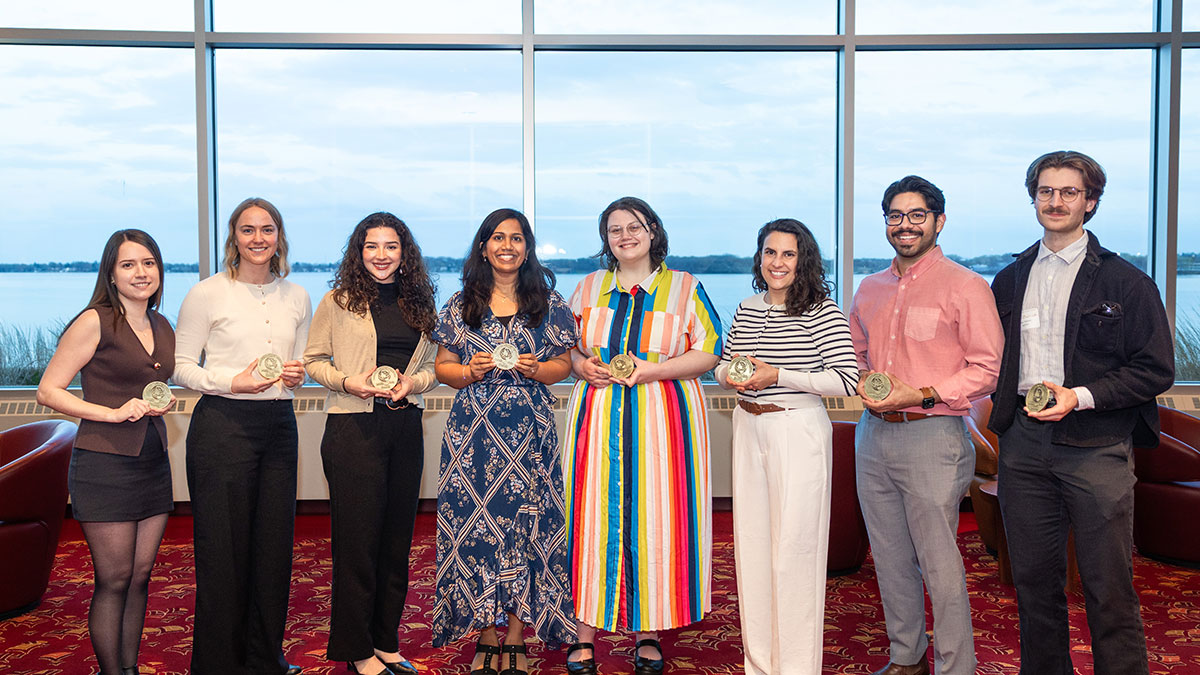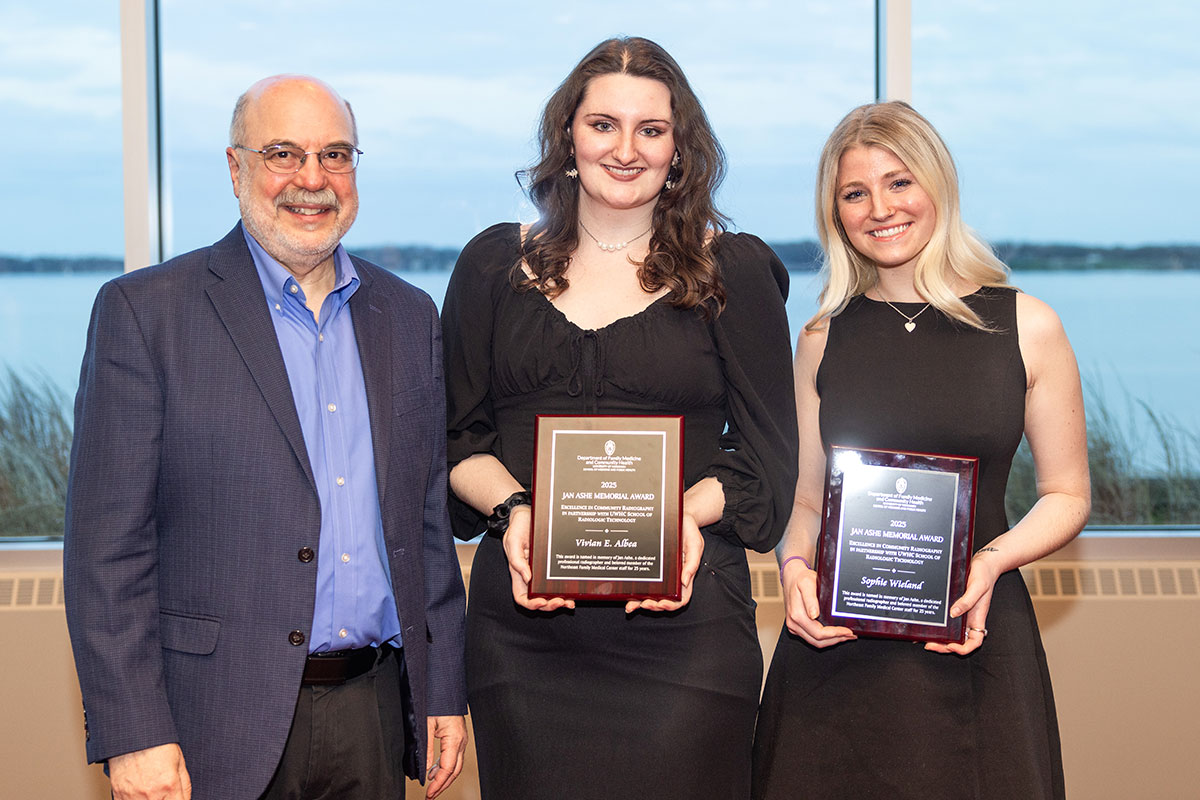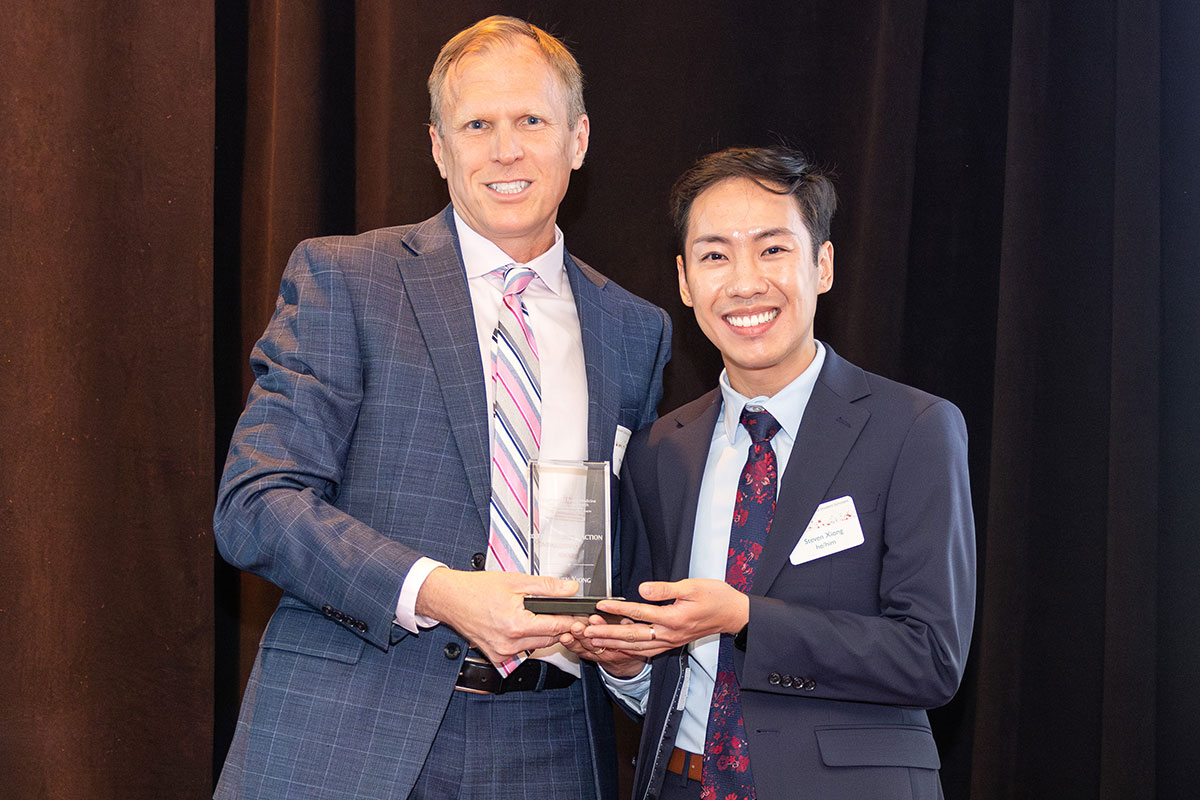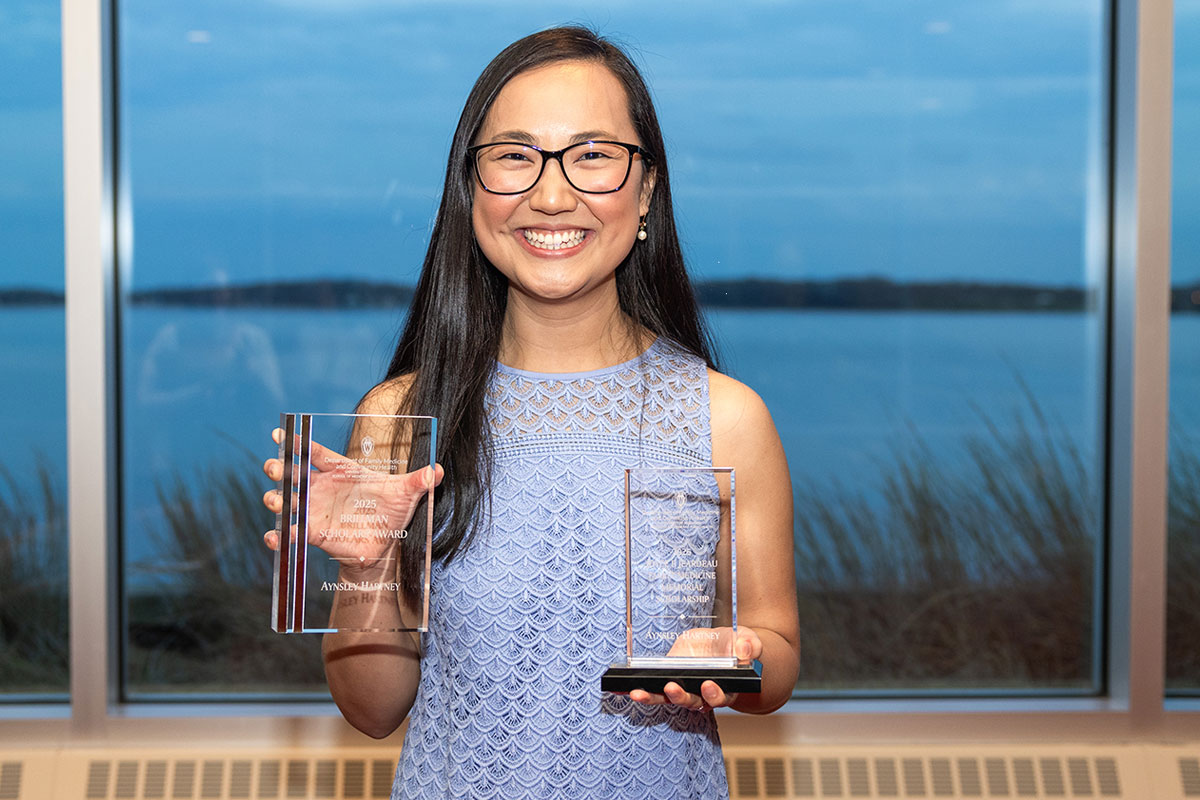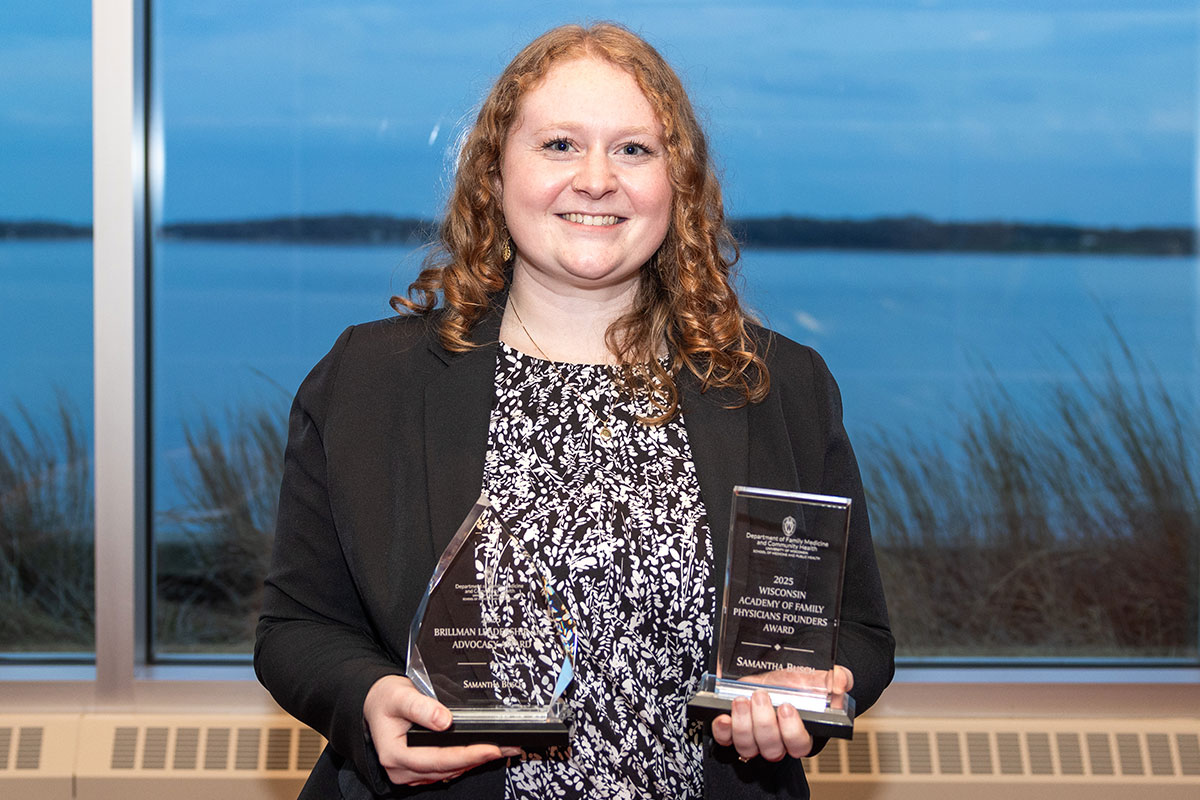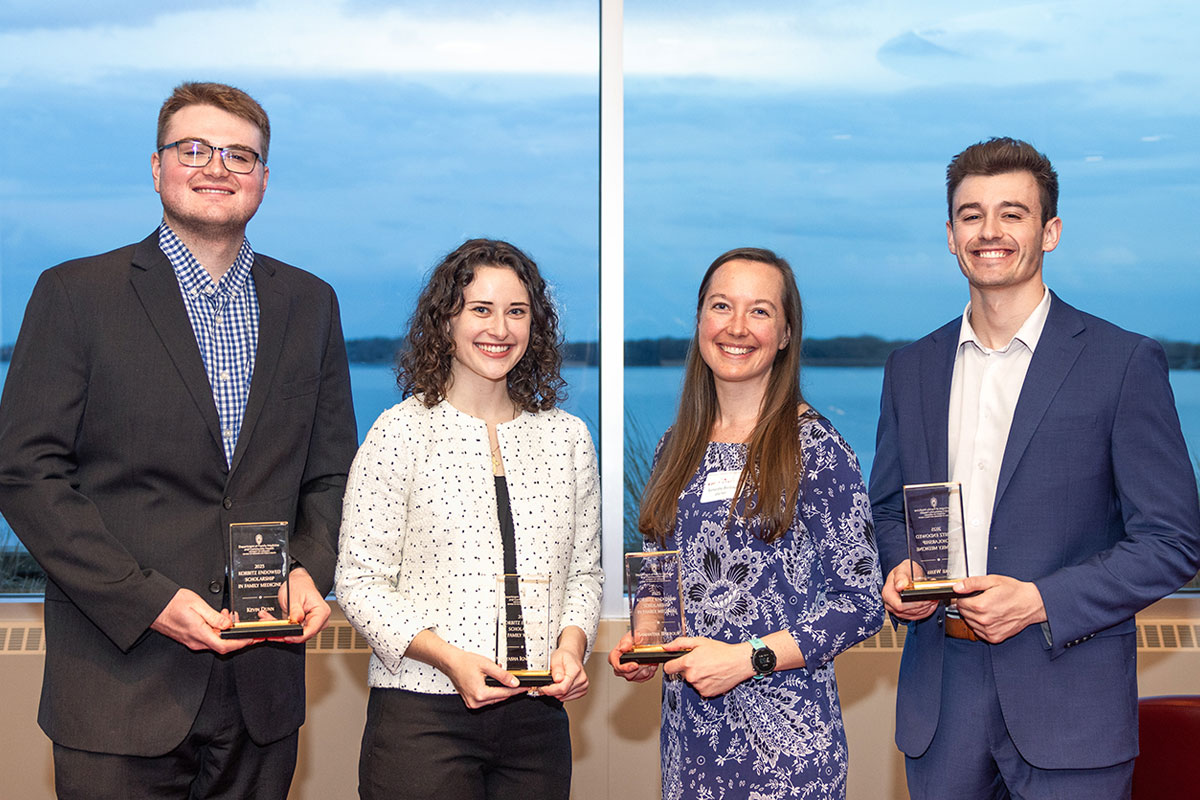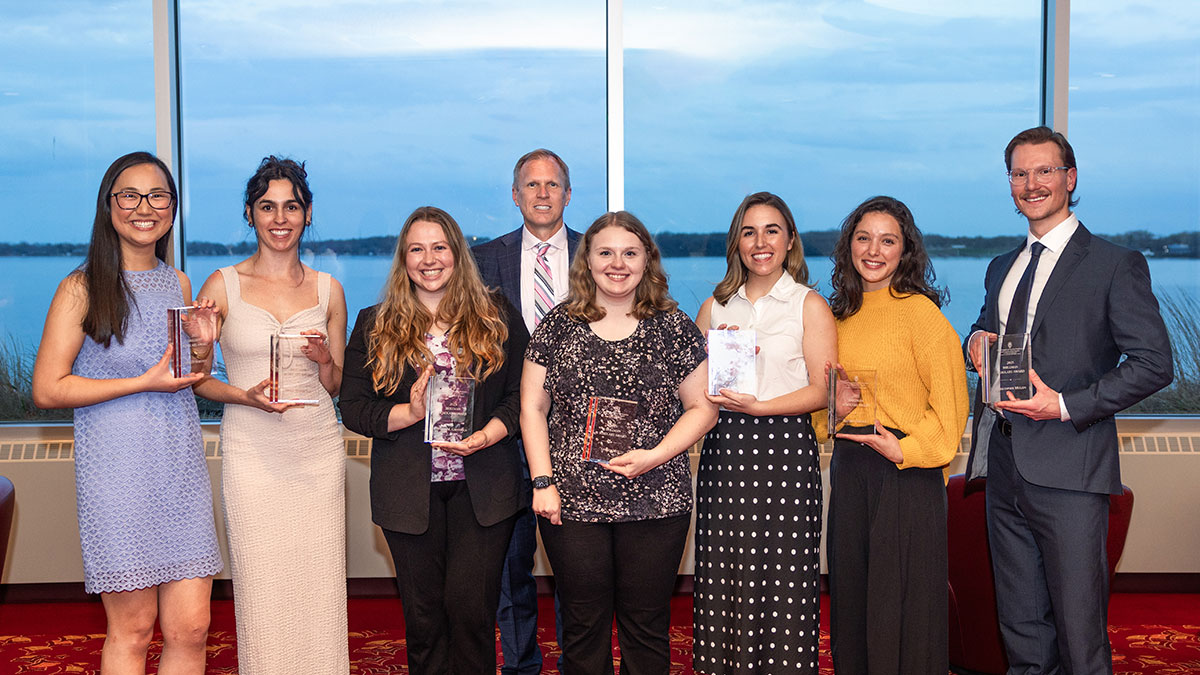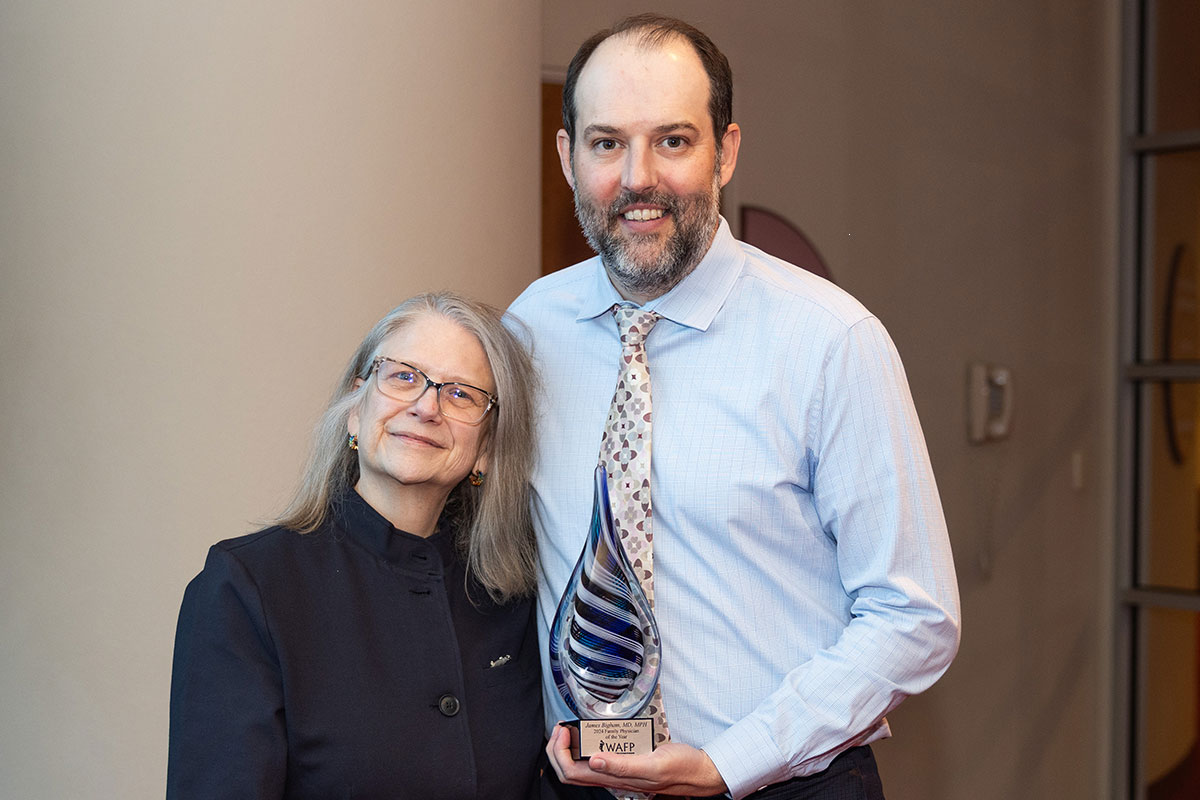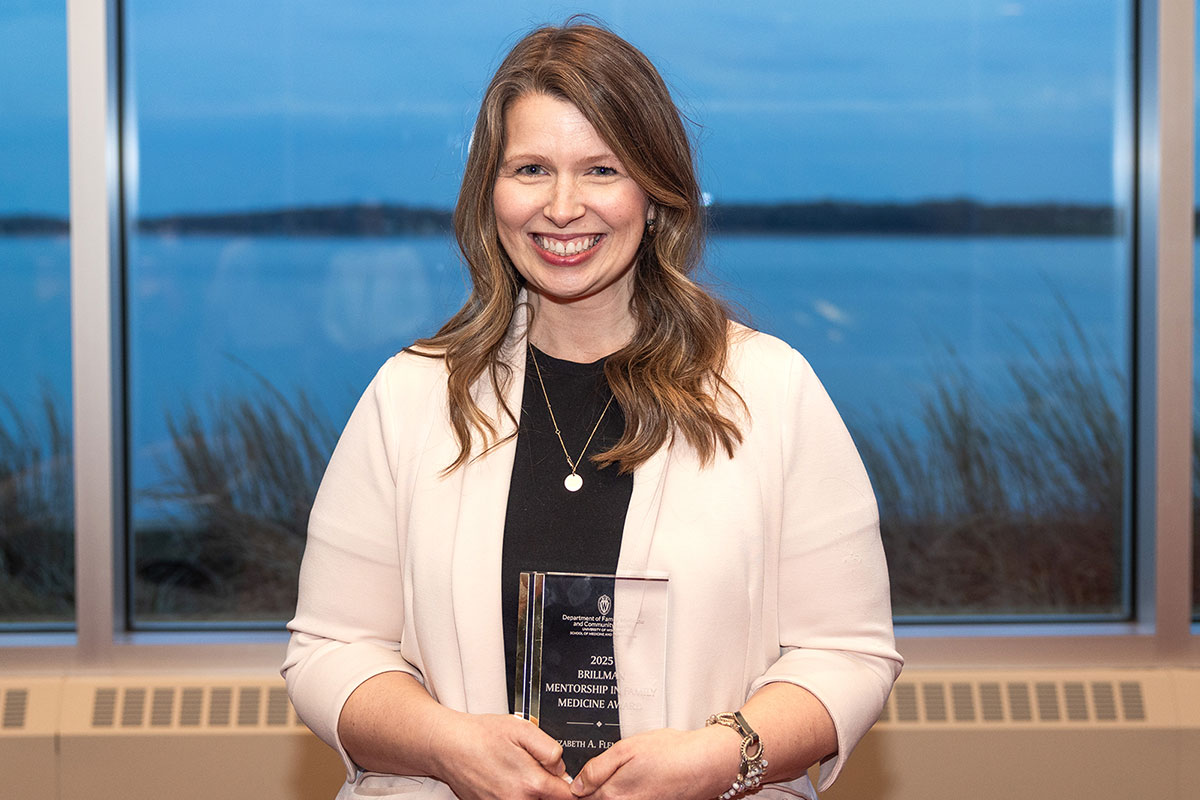The UW Department of Family Medicine Community Health’s annual McGovern-Tracy and Student Scholars reception is more than a celebration of achievements. It honors the legacies of Michele Tracy, Isabel McGovern Kerr, and others whose lives have profoundly impacted the people of Wisconsin and beyond. The April 23, 2025, event at the Monona Terrace Convention Center captured this spirit with a keynote address, good food, laughter, and a few tears.
With these legacies in mind, the night’s keynote speaker, Dr. Jonas Lee, a physician at Wingra Family Medicine Center in Madison, shared his experiences and invited attendees to find the threads that bind us together. “My deepest wish for all of you is that you also find a place or develop a practice or find a path that also feels like home,” Lee shared.
Learn more about Jonas Lee, MD
Lee emphasized the importance of relationships in family medicine, from the joyous moments of birth to the solemn occasions of honoring someone’s legacy at death. He reflected on the relationships that sustain meaningful work, acknowledging the colleagues and mentors who helped him stay true to the mission of doing right in the often-challenging field of family medicine. Sharing personal anecdotes, Lee recounted the pressure he faced as a first-generation Korean American to become a physician and the unwavering support from his wife, which bolstered his self-confidence.
A cornerstone of Lee’s address was the significance of non-judgmental communication with patients. He stressed the importance of conveying care and belief in their value as human beings. “When I’m with a patient, my words and my body language always give a message,“ he said.
Lee highlighted the need to see patients within the full context of their community, recognizing that social issues like access to transportation, fresh food, and childcare significantly impact health outcomes. “Social issues actually have a much bigger impact on health outcomes than medical care,” he noted. He posed thought-provoking questions: What if we considered the community as a patient? Not just the individual sitting in front of us, but the entire community. What if we could provide care with a rich understanding of all aspects of their lives? Better yet, what if we address these social determinants at a community level?
Lee shared his experiences working with Sheray Wallace, the first certified community health worker in Dane County. Wallace, along with other community health workers—including those Lee partners with at the Allied Wellness Center in the Allied Drive neighborhood—serves as a bridge between residents and the medical community. “They’ve given me invaluable insight into the issues in that community,” Lee remarked, “but they see it from a place of strengths and resources as opposed to problems and deficiencies.”
He praised the roles of health coaches, doulas, and community organizers, who perform magical work fostering trust and providing care in underserved communities. During the pandemic, community health workers delivered critical and accurate information on COVID-19 and vaccines, showcasing their inspiring work.
Lee envisions marrying public health with primary care by taking health care out of clinics and into the community. Through collaboration with the Osher Center for Integrative Health at UW, he is exploring what community-based care might look like. The central foundation of the whole health model is the mindfulness of our dreams and values. The Osher Center is beginning the work of having community health workers experiment with this model in the neighborhoods they serve. “Ultimately, my dream would be to bring medicine out there, to participate in group medical visits alongside the community health workers,” he shared.
As he concluded his address, Lee left attendees with questions and a challenge at this stage in their medical careers. “Look around you and think about who will be your mentors, who will be your colleagues? You have to have that community. What are those critical relationships that you need to continue to do this wonderful work? And what will be your thread? How are you going to weave together a career and a life that speaks to your own values and to why you chose to go into medicine in the first place?”
Many students, fellows, and colleagues honored at this year’s event are finding that thread as they build the relationships that will sustain them throughout their careers and lives.
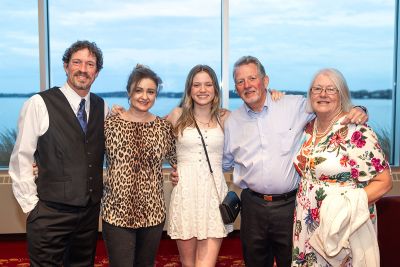
Michele Tracy’s family. From left: Brandon Tracy, Dera Johnsen-Tracy, Layla Tracy, Dan Tracy, and Candi Tracy.
This year’s McGovern-Tracy Scholars reflect the generosity and commitment to service that Michele Tracy was known for. When asked to describe her, Brandon, her brother, recalled her selflessness, care, and unwavering dedication to those in need. Tracy’s work with homeless and HIV-positive individuals demonstrated her enthusiasm for helping underserved communities. Her passion for service took her to Malawi during medical school, where she tragically died in an accident. The scholars also share a drive for creating change, much like Isabel McGovern Kerr, who came from a family of pioneering physicians serving urban and rural families in Wisconsin.
Meet the Award Recipients
More Event Photos
On Facebook: https://www.facebook.com/wifamilymedicine/posts/1357773482399142
Published: May 2025

